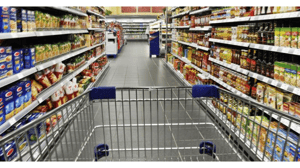Retail Council of Canada says report shows no ‘greedflation’ in grocery
The trade group cited no evidence of food price gouging by large grocers in a months-long government study.

Canada’s grocery retail sector has not engaged in “greedflation,” the trade association Retail Council of Canada said this week upon the release of a government report scrutinizing high food prices.
The Canadian House of Commons’ Standing Committee on Agriculture and Agri-Food last fall voted to undertake an in-depth study on elevated inflation in the food supply chain, soaring grocery prices and possible profiteering by large supermarket chains. In large part, the investigation stemmed from suspicions by many Canadian consumers and public officials that grocery companies might be using high inflation as a cover to raise prices.
Matters reached a crescendo in March, when the heads of Canada’s big-three grocers—Galen Weston of Loblaw Cos., Michael Medline of Sobeys (Empire Co. Ltd.) and Eric La Fleche of Metro—were grilled publicly about potential grocery price gouging in a parliamentary committee hearing.
For its study, the Agriculture and Agri-Food committee held eight meetings on grocery pricing between early December 2022 and mid-April 2023, hearing from stakeholders representing food and beverage production and processing, food retailing, civic groups and government. The study’s conclusion: Food price inflation stems from a range of factors—global influences, supply chain relationships and consumer behavior, among others—and more transparency and collaboration are needed “to ensure fairness in the business relations between each link in the chain.”
These findings “were markedly different from the surrounding rhetoric at the outset of the hearings,” according to the Retail Council of Canada
“The report makes it clear that multiple factors have led to this inflationary environment, most of them of a global nature, driving up input costs in the supply chain long before these foods get to Canada’s grocers. The combined roles of cost spikes for feed, fuel and fertilizer—compounded by supply chain disruptions, labor shortages and climate events—have been the real drivers of food price inflation,” the retail trade association stated on Tuesday.
“The report also notes expert opinion agreeing with what we have said throughout: that there is no ‘greedflation’ in Canada’s grocery sector,” the council noted. “The committee declined to offer any evidence that grocers are profiting from food inflation.”
Not long after the grocery CEOs’ committee appearance in March, market researcher Mintel released survey findings that 83% of Canadian grocery shoppers believed grocery retailers and food producers were using inflation as an excuse to price-gouge. Also, 73% agreed the pace of food price hike has given them added stress, and 76% admitted feeling “trapped” by the fact that no matter how much food prices rise, they have no choice but to absorb them. And in April, shopper concerns about high food prices pushed Canada’s government to propose a one-time “grocery rebate” as part of its 2023 budget.
Yet the Retail Council noted that Canadian grocers have instead been trying to rein in pricing. The group also cited a Ubuy study finding that Canada has the world’s second-lowest food inflation.
“The very opposite is true—grocers work daily to provide food to Canadians at the lowest prices possible. And so, it’s not surprising that the [Agriculture and Agri-Food committee] report states that food inflation is lower in Canada than in our economic peers in the G7.”
Still, the committee’s report recommended that evidence of excess profits on food items by large grocery chains might warrant that Canada’s government introduce a “windfall profits tax” on “large, price-setting corporations to disincentivize excess hikes” in their margins.
“While we welcome the collaborative tone of the report, we would caution against increased government intervention in the operational aspects of the retail food business,” the Retail Council added. “It is a multilayered and dynamic business that works well for Canadian consumers, jobs and investment—and there is no evidence to suggest that prescriptive government intervention would do anything to lower food prices for Canadians.”
About the Author
You May Also Like






